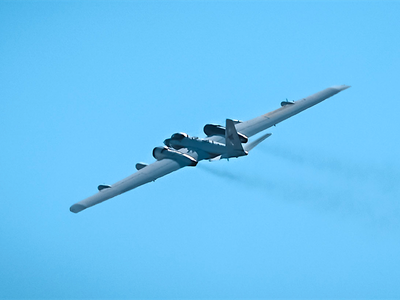U.S. scientists have deployed a modified Korean War-era bomber to measure trace gases in the stratosphere that reflect sunlight. The goal of the project: to better understand how humans might use such gases to cool an overheated planet.
“Processes in the stratosphere can change climate at the Earth’s surface,” Karen Rosenlof, a NOAA climate scientist, said in a statement. “Satellites give us important information, but not everything we need to know.”
In 2020, Congress directed NOAA to research ways to cool the Earth. The new undertaking, dubbed the SABRE program, is part of that effort. The WB-57 aircraft, a converted B-57 bomber, is now operating out of Fairbanks, Alaska, carrying 17 sampling instruments supplied by NOAA, NASA, Harvard, and the University of Vienna. The plane will measure trace gases in the Arctic stratosphere before undertaking missions in the tropics in 2024 and the Southern Hemisphere in 2025.
Aerosols, which can come from volcanic eruptions, wildfires, and industrial pollution, reflect sunlight and cool the planet. Throughout history, large volcanic eruptions have produced a measurable, but temporary drop in global temperatures. Some scientists have suggested spraying aerosols into the stratosphere to offset human-caused warming, but the idea is deeply contentious.
A coalition of hundreds of researchers recently called for “no deployment of solar geoengineering” and “no public support for research,” arguing that “dangerous planetary-scale interventions cannot be governed in a globally inclusive, fair and effective manner and must be banned.”
In an apparent response, a group of more than 100 scientists have signed an open letter affirming “the importance of proceeding with responsible research” into solar engineering. The letter does not endorse the use of the technology, but encourages the study of its effects.
Inger Andersen, executive director of the UN Environment Programme has said that, as yet, the evidence needed to make informed decisions about solar geoengineering is “simply not there.”
ALSO ON YALE E360
Geoengineer the Planet? More Scientists Now Say It Must Be an Option



